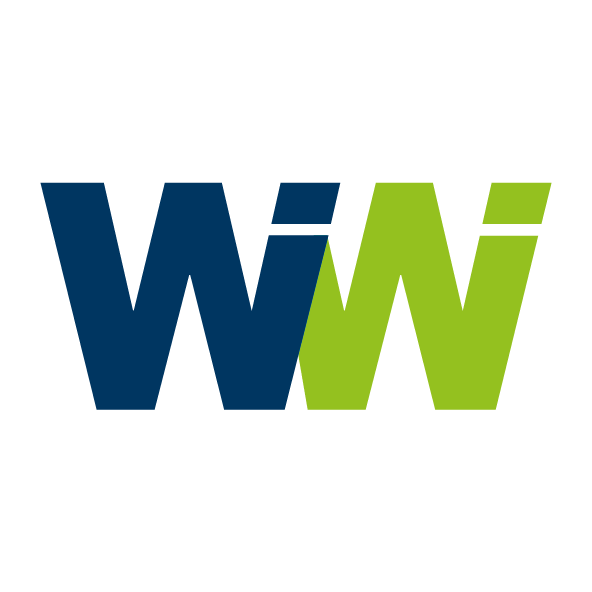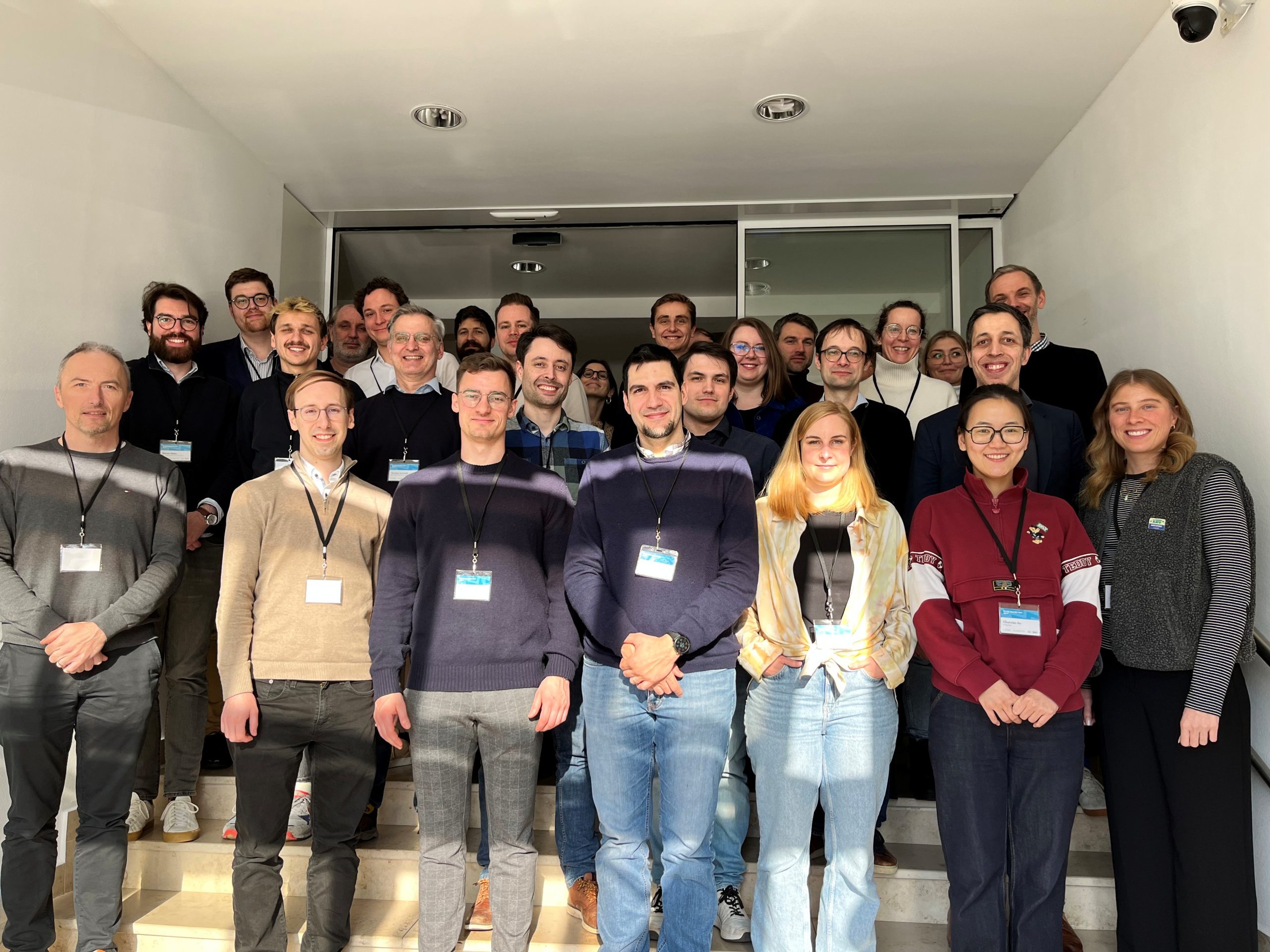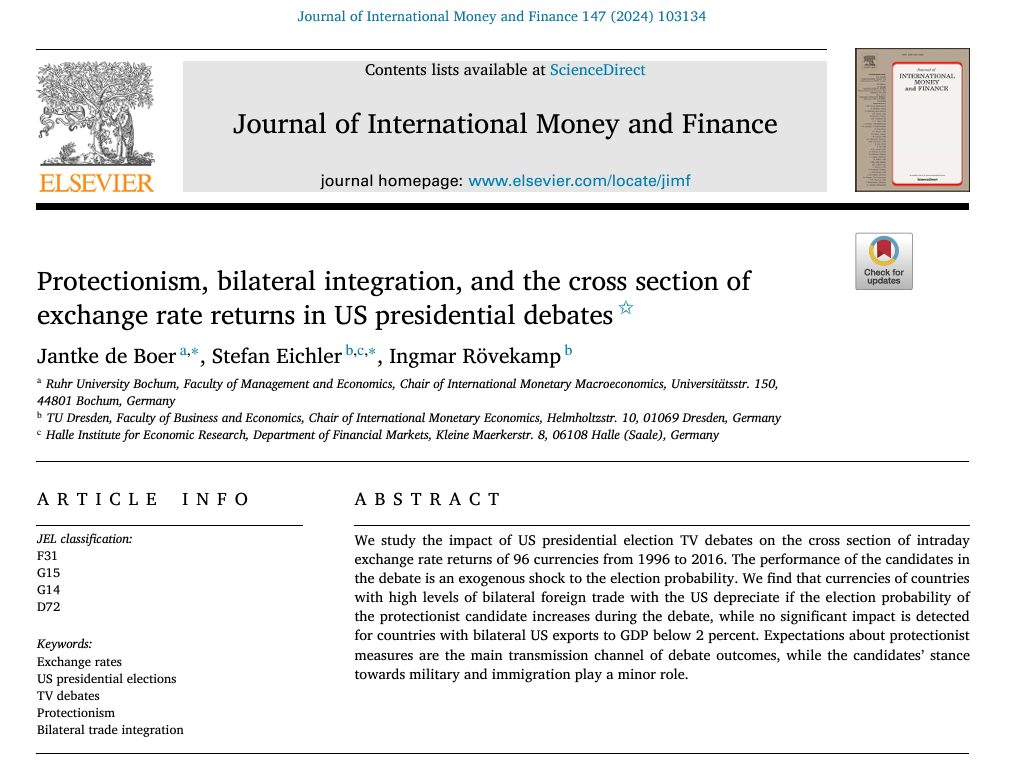International Monetary Macroeconomics
Über uns
Die Juniorprofessur International Monetary Macroeconomics beschäftigt sich mit Themen der monetären Außenwirtschaft, insbesondere an der Schnittstelle zwischen internationaler Makroökonomik und Finanzwirtschaft. Die Forschung konzentriert sich dabei auf zentrale Themenbereiche, wie beispielsweise Wechselkurse, internationale Investitionen, Außenhandel, Geld- und Währungspolitik sowie Finanzstabilität. In der Lehre stehen die Zusammenhänge zwischen makroökonomischen und finanzwirtschaftlichen Problemen im Kontext internationaler Finanzmärkte im Vordergrund.
Im Zuge der Globalisierung und der zunehmend komplexen Architektur internationaler Finanzmärkte, haben realwirtschaftliche und monetäre Interdependenzen zugenommen sowie auch das Risiko von Finanzkrisen. So lassen sich Veränderungen von makroökonomischen Kerngrößen und internationalen Vermögenswerten häufig nur schwer erklären, obwohl deren Verständnis für Investoren, internationale Unternehmen, Zentralbanken und Regierungen von fundamentaler Bedeutung ist. Vor dem Hintergrund globaler Herausforderungen wie Klimawandel und Ungleichheit sowie politischer Tendenzen wie Protektionismus und Autokratien leiten sich neue Anforderungen für Wirtschafts-, Geld- und Fiskalpolitik ab.
Jun.-Prof. Dr. Jantke de Boer
Raum GD 03 /341
Tel +49 (0)234 32 22776
Team
Lehre
Informationen zu:
Einen Leitfaden zur Erstellung von Seminar- oder Abschlussarbeiten an der Juniorprofessur International Monetary Macroeconomics finden Sie hier.
Lehrangebote
unreg.
SoSe
SoSe
Forschung
Publikationen
Jantke de Boer, Stefan Eichler and Ingmar Roevekamp
Protectionism, Bilateral Integration, and The Cross Section of Exchange Rate Returns In Us Presidential Debates, Journal of International Money and Finance (2024), 103134
Jantke de Boer, Kim J. Boevers and Steffen Meyer
Business cycle variations in exchange rate correlations: Revisiting global currency hedging, Elsevier: Finance Research Letters, Vol 33 (2020), 101195
Jantke de Boer, Stefan Eichler and Ingmar Roevekamp
Protectionism, Bilateral Integration, and The Cross Section of Exchange Rate Returns In Us Presidential Debates, Journal of International Money and Finance (2024), 103134
Jantke de Boer, Kim J. Boevers and Steffen Meyer
Business cycle variations in exchange rate correlations: Revisiting global currency hedging, Elsevier: Finance Research Letters, Vol 33 (2020), 101195
Aktuelle Meldungen
Der Lehrstuhl gehört zum Kompetenzfeld:







